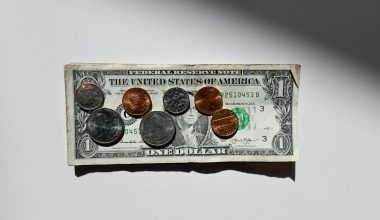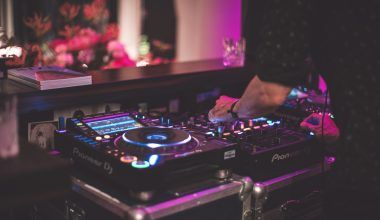If you’ve ever wondered how long an album is compared to an EP, you’re not alone. With so much music available today, it can be tricky to understand the difference between these two formats. Let’s dive into the details, break down the differences, and help you fully grasp how long is an album vs ep. Whether you’re a music enthusiast, an aspiring artist, or simply curious, this guide will make it all crystal clear.
What is an Album?
An album is typically a collection of songs released together as one cohesive project. It’s often seen as the pinnacle of an artist’s creativity, showcasing their talent and vision in a long-form format. Albums generally include 10 to 15 tracks, but this can vary. On average, the total length of an album ranges from 30 minutes to over an hour. Some albums even go beyond that, depending on the genre and the artist’s goals.
Artists usually spend a lot of time crafting albums. The process might include conceptualizing themes, writing lyrics, recording music, and fine-tuning every detail. This effort often results in a comprehensive listening experience. Albums can tell a story, explore a variety of sounds, or even serve as a time capsule of an artist’s journey.
What Does EP Stand For?
EP stands for “Extended Play.” It’s a shorter collection of songs than an album but longer than a single. Typically, an EP includes 3 to 5 tracks and runs between 15 to 30 minutes. Think of an EP as a sampler, offering a taste of an artist’s style or sound.
For emerging artists, EPs are a great way to introduce themselves to listeners without the commitment of creating a full-length album. For established musicians, EPs can serve as a creative outlet for experimenting or as a way to bridge the gap between major album releases.
Key Differences Between an Album and an EP
Now that you know what an album and an EP are, let’s compare them more closely:
- Length: Albums usually have a longer runtime, while EPs are shorter and more concise.
- Number of Tracks: Albums often feature 10 or more songs, while EPs typically stick to 3 to 5 tracks.
- Purpose: Albums are often seen as a complete artistic statement, whereas EPs might serve as an introduction or experiment.
- Cost: Producing an album often requires more time, effort, and money compared to an EP.
- Listener Experience: Albums provide an in-depth experience, while EPs offer a quick snapshot of an artist’s work.
Why Does Length Matter?
The length of an album or EP isn’t just about the number of songs or the total runtime. It can also influence how listeners engage with the music. For example, albums often require a time investment, making them ideal for dedicated fans. On the other hand, EPs are more accessible for casual listeners or those discovering an artist for the first time.
Additionally, the length can affect how the music is marketed and consumed. Streaming platforms like Spotify and Apple Music categorize releases based on their length, which can impact visibility and discoverability. For instance, an EP might appeal to playlist curators looking for short, impactful tracks, while an album might draw listeners seeking a deeper dive.
Historical Context: How Albums and EPs Evolved
To understand the difference between an album and an EP, it helps to know a bit of history. Albums became a dominant format during the mid-20th century with the rise of vinyl records. These records typically held about 40 minutes of music, split between two sides. Over time, as technology evolved, albums grew longer and more diverse.
EPs, on the other hand, emerged as a format for smaller collections of songs. They were often used for promotional purposes or as a way for artists to release new material without committing to a full album. With the advent of digital music, EPs became even more popular because they allowed for quick and affordable releases.
Modern Trends in Albums and EPs
In today’s music world, the lines between albums and EPs are blurring. Many artists release “micro-albums” or long EPs that sit somewhere in between. Streaming has also changed how artists think about length. With listeners’ attention spans getting shorter, some artists opt for shorter albums or EPs to keep their audience engaged.
Another trend is the rise of deluxe editions and extended versions of albums. These releases often include additional tracks, essentially turning an album into an expanded project. Similarly, EPs are sometimes re-released with bonus songs, making them feel closer to a full album.
Why Choose One Over the Other?
For artists, deciding whether to release an album or an EP depends on their goals. If they want to make a big statement, an album is the way to go. It’s an opportunity to show the full range of their abilities and tell a complete story. However, how long is an album vs ep if they’re looking to test the waters or keep fans engaged between albums, an EP can be the perfect choice.
For listeners, the choice often comes down to how much time they have and what kind of experience they’re looking for. Albums are great for long drives, relaxing evenings, or deep dives into an artist’s world. EPs are ideal for quick listens, workouts, or discovering new music.
Final Thoughts
Understanding how long is an album vs ep can help you appreciate the thought and effort that goes into creating music. While albums and EPs differ in length, purpose, and impact, both formats have a valuable place in the music world. Whether you’re an artist deciding what to release or a listener exploring new sounds, knowing these distinctions can make your musical journey even more enjoyable.
Related Articles:
For further reading, explore these related articles:
- Nona Gaye: The Life of a Singer, Actress, and Daughter of a Legend
- The Amazing Story of Korn Band: Legends of Nu-Metal
For additional resources on music marketing and distribution, visit DMT RECORDS PRIVATE LIMITED






